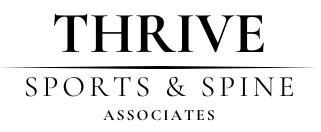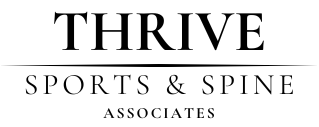Is Shoulder Pain Holding You Back? Learn What Might Be Causing It

Is Shoulder Pain Holding You Back? Learn What Might Be Causing It
Many of the movement patterns that cause shoulder discomfort or poor posture stem from dysfunction in just a few key muscles—particularly those attached to a small bony point on your shoulder blade called the coracoid process.
At our office, we regularly assess and address four common muscles that attach to this area. When overactive, these muscles can alter your posture, reduce performance, and contribute to chronic discomfort.
The 4 Key Muscles:
- Pectoralis Minor – Often tight in individuals with forward shoulders, this muscle is dominant in shoulder protraction (when the shoulder moves forward).
- Coracobrachialis – Commonly overused during repetitive shoulder flexion and horizontal adduction (like reaching across the body).
- Short Head of the Biceps – Can become overly dominant during elbow flexion.
- Subclavius – Sometimes involved in excessive clavicular depression, contributing to a dropped shoulder appearance.
When these muscles become dominant, they can overpower other important stabilizing muscles, throwing off your body's natural balance.
What We Look For in Treatment:
Through precise palpation and movement assessment, we can identify which of these muscles may be overactive and which supportive muscles may be underperforming. For example:
- An overactive pectoralis minor may inhibit your rhomboids and serratus anterior, reducing your ability to retract or stabilize the shoulder blade.
- A dominant short head biceps may shut down parts of your triceps or long head biceps, affecting arm strength and coordination.
- An imbalanced Subclavius can contribute to weakness in lower trapezius and pectoralis major, affecting shoulder blade control.
Why It Matters:
Your shoulder mechanics directly impact everything from posture to performance. By restoring proper muscle balance and motor control, we can improve joint function, reduce pain, and prevent future injuries.
How We Help:
Our approach includes:
- Movement screening and assessment
- Manual therapy to reduce muscular compensatory patterns
- Chiropractic adjustments and myofascial work
- Motor control retraining to improve scapulothoracic coordination
Take the First Step Toward Shoulder Health
If you’re dealing with shoulder pain, limited range of motion, or postural fatigue, schedule an evaluation today. We’ll help you uncover the root cause and build a plan to get you moving better, faster.












